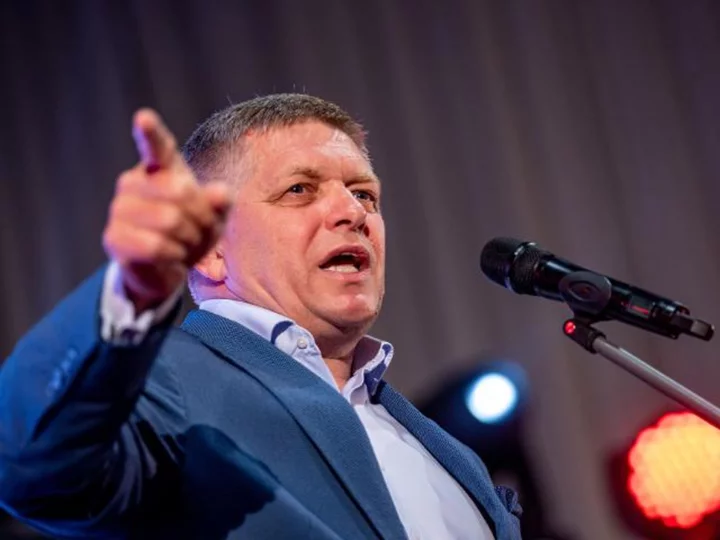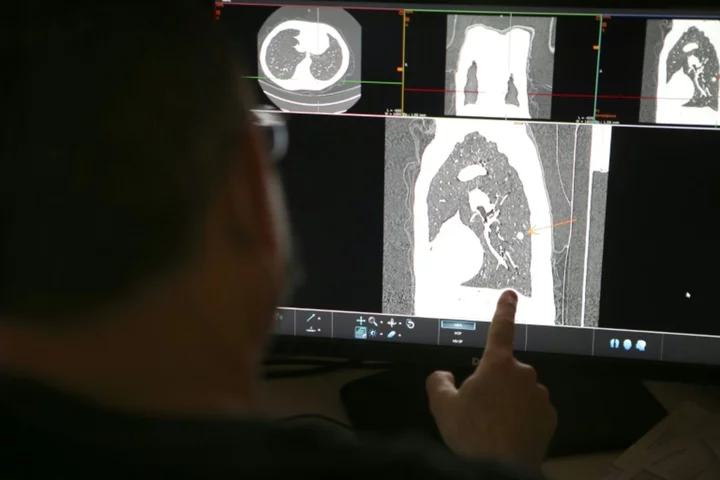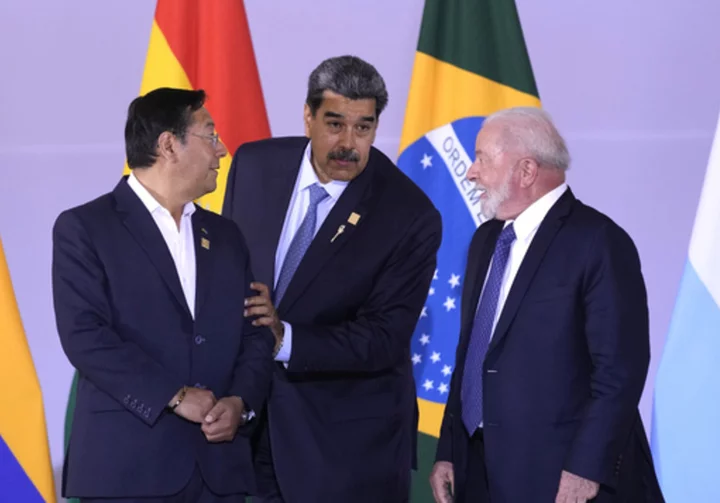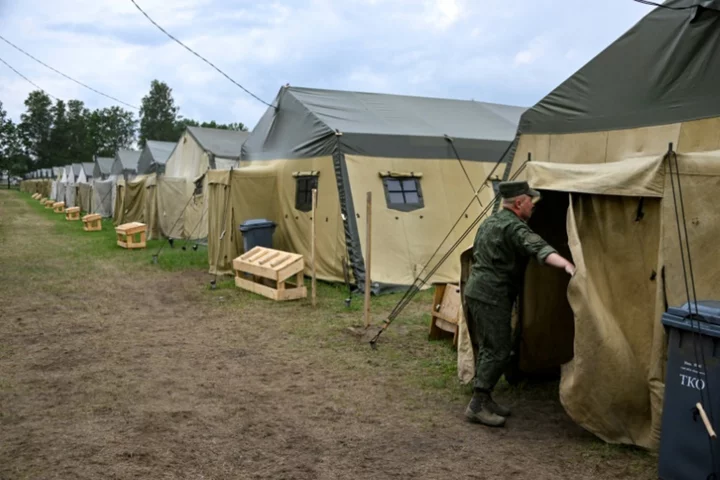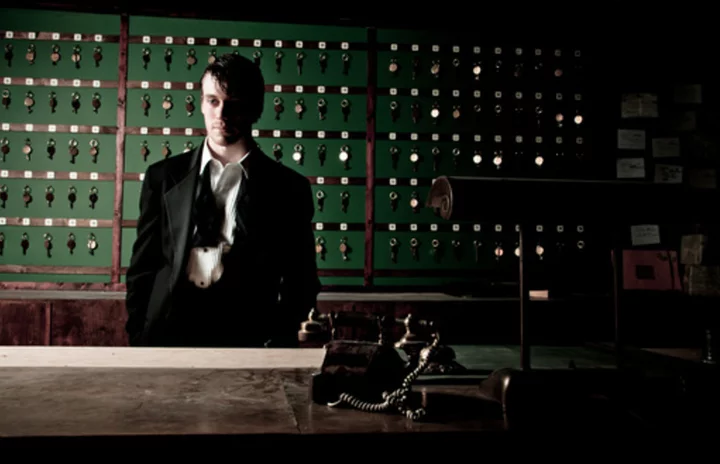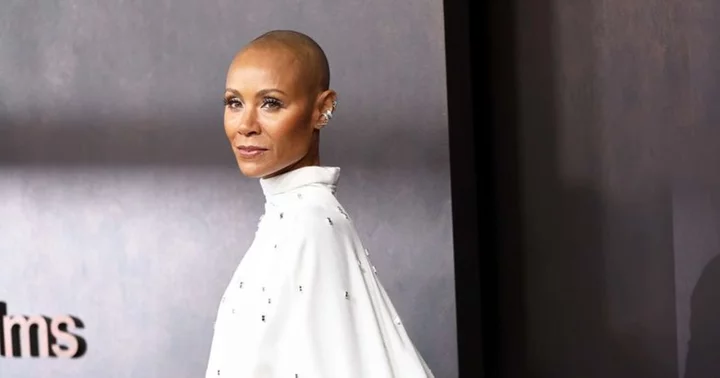Slovakia is getting ready to elect its fifth prime minister in just four years, and with Kremlin sympathizer Robert Fico's opposition party leading the polls, it is one being watched with alarm in the West.
Since Russia invaded Ukraine last February, Slovakia has been one of Kyiv's staunchest allies. The two countries share a border, Slovakia was the first country to send air defenses to Ukraine and it welcomed tens of thousands of refugees.
But all that could change if Fico comes to power. The former prime minister makes no secret of his sympathies towards the Kremlin and has blamed "Ukrainian Nazis and fascists" for provoking Russia's President Vladimir Putin into launching the invasion, repeating the false narrative Putin has used to justify his invasion.
Fico has called on the Slovak government to stop supplying weapons to Kyiv, and said that if he were to become prime minister, Slovakia would "not send another round of ammunition." He is also opposed to Ukraine joining NATO.
Grigorij Mesežnikov, a political analyst and the president of the Institute of Public Affairs, a Slovak think tank, said that like many Russia sympathizers, Fico is framing his support for Moscow as a "peace" initiative.
"He and his allies argue that we shouldn't be sending weapons to Ukraine because it will make the war go on for longer. They are saying 'there will be peace if we stop sending weapons to Ukraine' because if we don't the conflict will end sooner. So, in essence, they are not pro-peace, they are pro-Russian," he told CNN.
Fico previously served as Slovakia's prime minister for more than a decade, first between 2006 and 2010 and then again from 2012 to 2018.
He was forced to resign in March 2018 after weeks of mass protests over the murder of investigative journalist Jan Kuciak and his fiancée, Martina Kušnírová. Kuciak reported on corruption among the country's elite, including people directly connected to Fico and his party SMER.
Chaos and infighting
Voters turned away from SMER in the subsequent election in 2020 and elected the center-right Ordinary People and Independent Personalities (OLaNO) party.
Originally seen as a breath of fresh air, OLaNO and its leader Igor Matovič ended up disappointing many of their voters. Matovič, a self-made millionaire, won the election on a strong anti-corruption platform, promising to "clean up" Slovakia.
But his anti-corruption credentials suffered several blows early on. He was forced to admit to plagiarizing his masters thesis and presided over a government plagued with infighting.
He was forced to step down after just over a year after his unilateral decision to buy Covid-19 vaccines from Russia sparked a rebellion in his coalition government.
Matovič switched places with his finance minister Eduard Heger, but the chaos continued. As the country struggled with the fallout from the pandemic and Russia's invasion of Ukraine, more infighting and personal conflicts led to the collapse of the governing coalition in December. Heger continued as a caretaker prime minister but he, too, ended up quitting in May and was replaced by a technocrat, Ludovit Odor.
The chaos of recent years has given Fico a new chance.
"A year after the last election, it looked almost like the party would completely disappear. But (Fico) has managed to rehabilitate himself and is now the frontrunner," Mesežnikov said. "SMER still have a strong support among their core voters and this support is emotionally connected to (Fico), but they have also been helped by the many conflicts within the government and by some external factors, including Covid, high inflation, the energy crisis and the war in Ukraine."
Slovakia has a complicated electoral system and fragmented political scene, with as many as 10 political groupings potentially capable of reaching the 5% threshold needed to enter the parliament.
That means that even if Fico's party wins the election, he will likely need at least one coalition partner. He has not ruled out working with Republika, an extremist far-right party which claims that the war in Ukraine is a consequence of "NATO's expansion policy" and Kyiv's "aggression towards the Russian minority in eastern Ukraine."
Disinformation and propaganda are winning
Government infighting and several high-profile corruption scandals have weakened people's trust in public institutions and created fertile ground for propaganda and disinformation campaigns.
In the latest twist last month, Slovak police charged the country's spy chief and several other top level security officials with conspiracy to abuse power. Fico, who is close to some of those embroiled in the scandal, described the situation as a "police coup."
According to a survey by GlobSec, a Bratislava-based security think tank, only 40% of Slovaks believed Russia was responsible for the war in Ukraine, the lowest proportion among the eight central and eastern European and Baltic states GlobSec focused on. In the Czech Republic, which used to form one country with Slovakia, 71% of people blame Russia for the war.
The same research found that 50% of Slovaks perceive the United States — the country's long term ally — as a security threat.
Dominika Hajdu, the policy director at GlobSec's Centre for Democracy and Resilience, said Slovakia is uniquely vulnerable to Russian propaganda.
"Some of the parties that are currently leading in the polls are spreading the same narratives -- for example that it is the West that is trying to 'drag us' into the war and that anyone who is pro-Ukrainian is automatically anti-Slovak," she said.
She said the pro-Russian propaganda is resonating also because a large part of the population was always very pro-Russian and, even now, about a quarter of people view Russian President Vladimir Putin positively.
"Historically, there has always been a strong pan-Slavic narrative of Russia being the stronger brother who would protect Slovaks from the Hungarians and who then liberated Slovakia from the Nazis," she added.
Slovakia has a complicated relationship with Hungary, having been part of the Austro-Hungarian empire for centuries. Hungarians are the biggest minority in Slovakia and many Hungarians still see the 1920 Trianon Treaty, which redefined national borders after World War 1, as an injustice against their country. That has led to nationalistic rhetoric on both sides of the border.
Věra Jourová, European Commission's top digital affairs official, said the vote on Saturday will be a "test case" of how effective social media companies have been in countering Russian propaganda in Slovakia, because the issue is such a divisive line in the election.
"Slovakia has been chosen (by Russia) as the country where there is fertile soil for success of the Russian pro-Kremlin, pro-war narratives," said Věra Jourová, European Commission's top digital affairs official.
Mesežnikov said Fico and his allies were tapping into a growing fatigue and anger among Slovak voters over the government's unequivocal support for Ukraine.
"The government took a very quick and firm decision — and I'd say in doing so found itself on the right side of the history — to support Ukraine," he said. "Slovakia became a proactive member of the EU in proposing sanctions on Russia and sent all the equipment it could to Ukraine."
Slovakia's decision to send air defenses just weeks after the invasion started was followed by the delivery of armored vehicles, helicopters, howitzers and other equipment. It also took in more than 100,000 Ukrainian refugees — a noticeable number for a country of just 5.4 million.
However, Mesežnikov said that a large group of Slovaks did not agree with that approach — and that SMER and Republika were quick to start courting them.
"Their other argument, besides the peace one, is that we shouldn't be helping Ukraine because it's at the expense of Slovaks. They say it is too expensive and that we should worry only about ourselves," Mesežnikov said.
That is a powerful argument for voters who have been struggling with a cost-of-living crisis, but Mesežnikov said it is not based entirely on facts as most of the support is subsidized with European Union funds.

